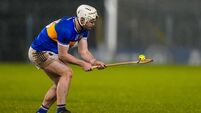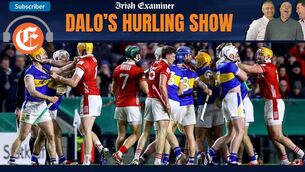Premier showdown is our All-Ireland final, insists Limerick trainer Moriarty
“From day one, when this draw was made, from the time we met in October with the panel of players that Richie (Bennis, Limerick manager) and the lads picked, we targeted this match.
“For us this is the All-Ireland final. Everything else is a bonus. It’s about progression, and if we can win this match, make a Munster final, that’s progress for Limerick hurling. You’re automatically in the All-Ireland quarter-final at that stage.










